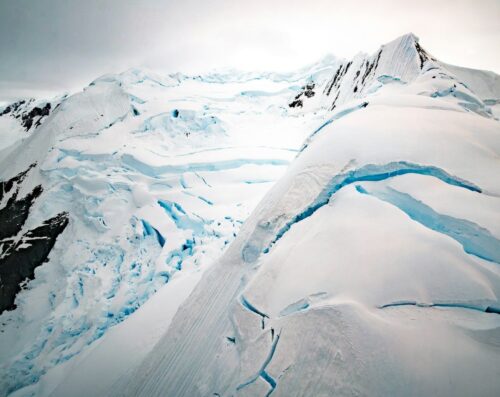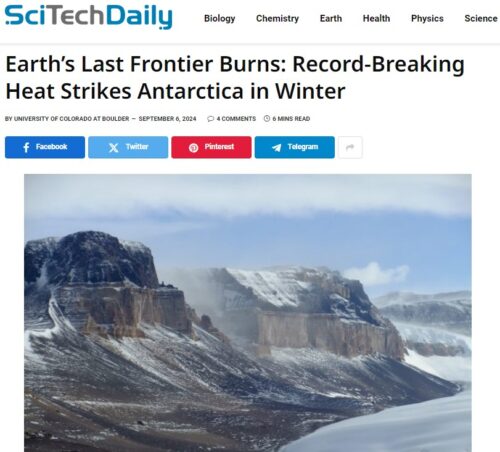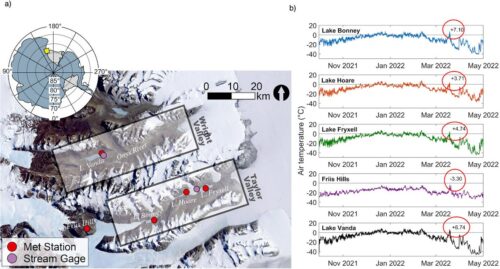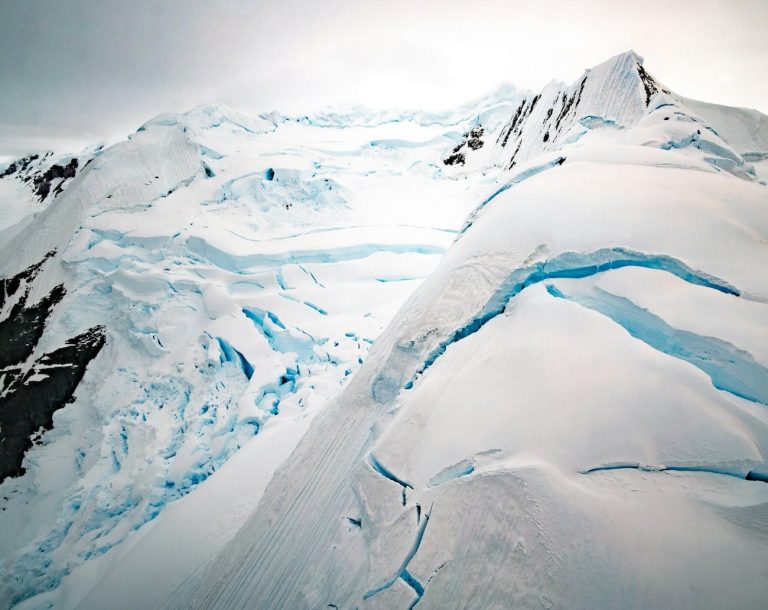

Various mainstream media outlets claim that Antarctica is burning and experiencing unusually hot temperatures due to climate change, citing a recent study as the source of their reports. These stories distort research findings and scientific evidence. [emphasis, links added]
The peer-reviewed paper cited in the headlines clearly states that short-term weather events are the cause, not climate change.
Furthermore, contrary to media claims, there was no “heat wave” as the official meteorological criteria for calling the event a heat wave were not met.
The picture above is the title of Science and Technology Daily: Earth’s last frontier is burning: Record-breaking high temperatures hit Antarctica in winter.
elsewhere, economic times A record heat wave in Antarctica poses a threat to global sea levels and ice integrity, with CNN reporting that the “shocking” Antarctic heat wave has caused temperatures to be 50 degrees above normal.


First, let's disprove the obvious. As shown in the photo above in the Science and Technology Daily headline, Despite claims that “the continent is on fire,” nothing is burning in Antarctica.
Science and Technology Daily said this:
In March 2022, the most intense heat wave ever recorded on Earth hit Antarctica, just as creatures in the southern region prepared for the long and harsh winter ahead.
The extreme weather has pushed temperatures more than 70 degrees Fahrenheit above average in parts of Antarctica, causing glaciers and snow to melt even in the McMurdo Dry Valleys, one of the coldest and driest regions on Earth.
To put that paragraph and these titles into perspective, we turn to the National Oceanic and Atmospheric Administration's (NOAA) definition of a heat wave:
A heat wave is a period of unusually hot weather that usually lasts two days or more. To be considered a heat wave, temperatures must exceed the historical average for a given area.
While temperatures in Antarctica were below normal during the one-day weather event, The temperature only briefly rises above freezing, so there is no measurable melting. It would be a mistake to label such events a “heat wave”.
“On March 18, 2022, record high temperatures were recorded in Antarctica's McMurdo Dry Valleys, nearly 30°C above the average temperature for the day,” the newspaper, which cited it as the source of the shocking headlines, said.
Additionally, they provide data in the form of Figure 1 showing temperatures at several locations in Antarctica:


As can be seen from the temperature map in March 2022 on the right side of Figure 1(b), A brief temperature spike occurs within a day (red circle)where freezing temperatures approach or exceed 0°C (32°F).
Temperatures in the area returned to normal immediately thereafter.
Therefore, in the context of the above NOAA heat wave definition, Minimum standards were not met for two days, so calling the brief temperature spike a “heat wave” is wrong or fake news.
The peer-reviewed paper said the incident was caused by, “[a]In March 2022, atmospheric rivers caused extreme weather in the Antarctic Dry Valleys, with temperatures 25°C higher than average.
Even the title of the peer-reviewed paper, “Responses of terrestrial polar ecosystems to Antarctic weather anomalies in March 2022,” calls it Abnormal weather.
A single-day weather event that briefly causes above-normal temperatures does not meet the meteorological definition of a heat wave or signal climate change because it does not represent the continent's 30-year long-term temperature trend.
Despite these scientific facts, mainstream media reporting on the event described it differently:[a] “Threats to global sea levels and ice integrity”, “alarming heat waves” and “the burning Antarctic continent” in the eyes of the media.
In the words of CNN, the degree of exaggeration is amazing.
The “news coverage” of this study and the weather anomalies it discusses is typical of media organizations who blame climate change for every slightly above-normal weather event, no matter how brief, even when basic research has not Discover this connection.
Weather is not climate. They operate on completely different time scales.
This kind of reporting is unprofessional and a distasteful disservice to the public, which the media should provide information to rather than mislead and indoctrinate.
Popular photo on Unsplash by Rod Long
Read more Climate Realism
